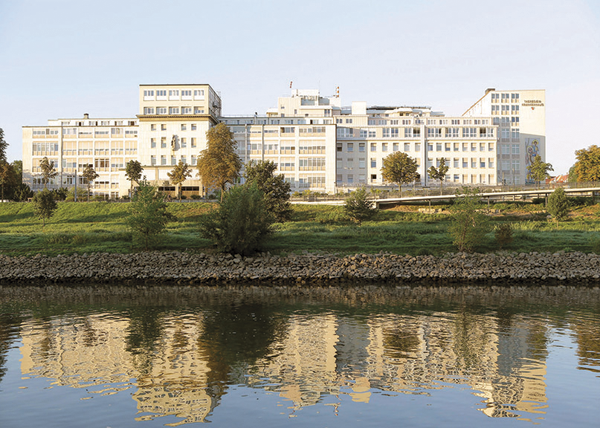 Abir Giacaman is from Bethlehem. In 1989 she moved to Germany, the country of her husband, whom she had met in the United States during an international professional exchange. Today she is the CEO of the Theresienkrankenhaus in Mannheim, an acute-care hospital that accommodates around 600 beds, 2 ICUs, 13 operation theaters, and 13 specialized departments, complete with all related state-of-the-art infrastructure. Mrs. Giacaman studied business administration in Bethlehem and, after learning German, in Germany. She then began her career in the hospital field and continued her education with a two-year program in hospital management. During that period she had numerous inter-professional internships in six different hospitals throughout the country. That experience was significant in broadening her understanding of the dynamic and complexity of clinical work.
Abir Giacaman is from Bethlehem. In 1989 she moved to Germany, the country of her husband, whom she had met in the United States during an international professional exchange. Today she is the CEO of the Theresienkrankenhaus in Mannheim, an acute-care hospital that accommodates around 600 beds, 2 ICUs, 13 operation theaters, and 13 specialized departments, complete with all related state-of-the-art infrastructure. Mrs. Giacaman studied business administration in Bethlehem and, after learning German, in Germany. She then began her career in the hospital field and continued her education with a two-year program in hospital management. During that period she had numerous inter-professional internships in six different hospitals throughout the country. That experience was significant in broadening her understanding of the dynamic and complexity of clinical work.
Ms. Giacaman had many role models in her family, starting with her parents, Elias and Therese Giacaman – a businessman and a teacher, respectively – both of whom were educated and devoted persons. Her late grandmother, Hilweh Giacaman, was one of the pioneers in Bethlehem and beyond at various socio-political levels. Her only regret is “not being able to continue along my late grandmother’s path.” Her immediate family members live in Bethlehem, Ramallah, and Paris.

Ms. Giacaman loves the openness of today’s Germany, where she has been able to advance as a foreigner and a woman. In particular, she appreciates German culture and enjoys the enormous cultural infrastructure that Germany offers. She loves living in the beautiful northern Black Forest region with its easy access to southern Europe.
As an integral member of society, she participates actively in a number of charitable organizations and professional bodies, including the Caritas board of directors in the diocese of Freiburg, the Rotary Club, and the university’s Health Expert Committee.
And yet Bethlehem, Palestine, family, and good old friends still belong to her day-to-day life. “We left home,” she admits, “but home never left us.”

